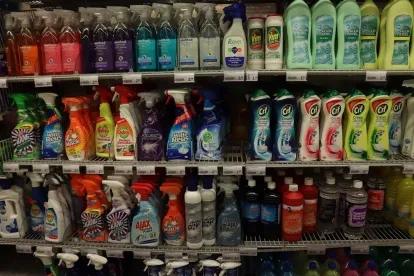Key Takeaways
-
What is happening? The Minnesota legislature passed a bill that would ban the use of perfluoroalkyl and polyfluoroalkyl substances (PFAS) in products. For certain enumerated categories of products, the ban would go into effect on January 1, 2025. For all other non-exempt products, the effective date would be January 1, 2032. The Minnesota Pollution Control Agency (MPCA) would be empowered to enact exemptions by designating certain uses as currently unavoidable. The bill would also require manufacturers of products containing intentionally added PFAS to notify the agency of such products and uses beginning January 1, 2026.
-
What is the background? Maine has already enacted similar reporting requirements and material restrictions and the European Union (EU) has recently proposed similar material restrictions. The U.S. Environmental Protection Agency (EPA) also proposed a reporting requirement under the Toxic Substances Control Act (TSCA) and has enacted or proposed several PFAS restrictions within the last few years. Several states have enacted narrower restrictions on PFAS in products (e.g., applicable to cookware or packaging).
-
Who is impacted? Manufacturers, distributors, and retailers who sell or distribute new products containing intentionally added PFAS.
Key Context
This bill is modeled after a 2021 Maine law that also imposed similar reporting requirements and material restrictions. The Minnesota bill, which borrows much of the same language, will therefore likely cause similar implementation challenges. From the outset, serious concerns were raised regarding the feasibility of Maine’s reporting requirements. This has resulted in the Maine Department of Environmental Protection (DEP) granting extensions to over a thousand companies and prolonged delays in DEP finalizing rules regarding reporting. The Maine legislature is currently considering amendments to the law.
Additionally, at the federal level, EPA proposed a PFAS Reporting Rule under TSCA. Under the rule, all PFAS manufacturers would be subject to a one-time reporting requirement that would seek detailed information about their products, what PFAS the products include, the category of use, and the number of people exposed to the product, among other things. As proposed, the rule would apply to companies that import products that contain PFAS in any amount. Like the Maine law, industry raised serious concerns about this proposal during public comment. In November 2022, EPA acknowledged that the proposed rule would cost hundreds of millions of dollars more than EPA originally estimated and hinted that the final rule may differ significantly from the proposal. The final rule is expected to be published later this year.
Notification Requirements
Under the Minnesota bill, manufacturers of all products containing intentionally added PFAS would be required to notify the MPCA of their use of PFAS for each PFAS-containing product starting January 1, 2026. The bill defines “intentionally added” as “PFAS deliberately added during the manufacture of a product where the continued presence of PFAS is desired in the final product or one of the product's components to perform a specific function” and defines “product” as “an item manufactured, assembled, packaged, or otherwise prepared for sale to consumers, including but not limited to its product components, sold or distributed for personal, residential, commercial, or industrial use, including for use in making other products.” The bill defines PFAS as “a class of fluorinated organic chemicals containing at least one fully fluorinated carbon atom.” This is the same definition as in the Maine law but is broader than EPA’s proposed definition in the PFAS Reporting Rule.
The notification must include:
-
a description of the product,
-
the purpose of using PFAS in the product,
-
the amount of each type of PFAS in the product (as an exact quantity determined by testing or within a range approved by the MCPA),
-
the contact information of the manufacturer,
-
and any additional information required by the agency.
Thus, manufacturers may not know the full scope of what they must report until the MPCA promulgates rules to implement the new law.
With the MPCA’s approval, a manufacturer would have the permission to supply the information required for a product category or type rather than for each individual product. MPCA may also waive the notification requirement where it determines that substantially equivalent information is already publicly available. It may also extend the notification deadline if the agency determines that more time is needed for a manufacturer to comply.
Prohibition on Use in Products
The Minnesota bill would ban the sale and distribution of new carpets, rugs, cleaning products, cookware, cosmetics, dental floss, fabric treatments, juvenile products, menstruation products, textile furnishings, ski wax, or upholstered furniture that contain intentionally added PFAS as of January 1, 2025. Starting January 1, 2032, the sale or distribution of any new product containing intentionally added PFAS would be prohibited unless the MPCA has determined by rule that the use of PFAS in the product is a currently unavoidable use. The MPCA may also, even before 2032, prohibit product categories or uses if they contain intentionally added PFAS (not to be effective prior to January 1, 2025). If the MPCA has reason to believe that a product contains intentionally added PFAS and the product is being offered for sale in the state, the agency may direct the product manufacturer to provide the agency with testing results that demonstrate the amount of each PFAS in the product.
Exemptions
The bill does not apply to:
-
a product for which federal law governs the presence of PFAS in the product in a manner that preempts state authority;
-
Firefighting foam (for which state law already restricts PFAS content);
-
Food Packaging (for which state law already restricts PFAS content); or
-
The sale or resale of a used product.
The testing requirements and prohibition on products containing intentionally added PFAS would also not apply to a prosthetic or orthotic device, or to any product that is a medical device or drug or that is otherwise used in a medical setting or in medical applications regulated by the U.S. Food and Drug Administration.






 />i
/>i

